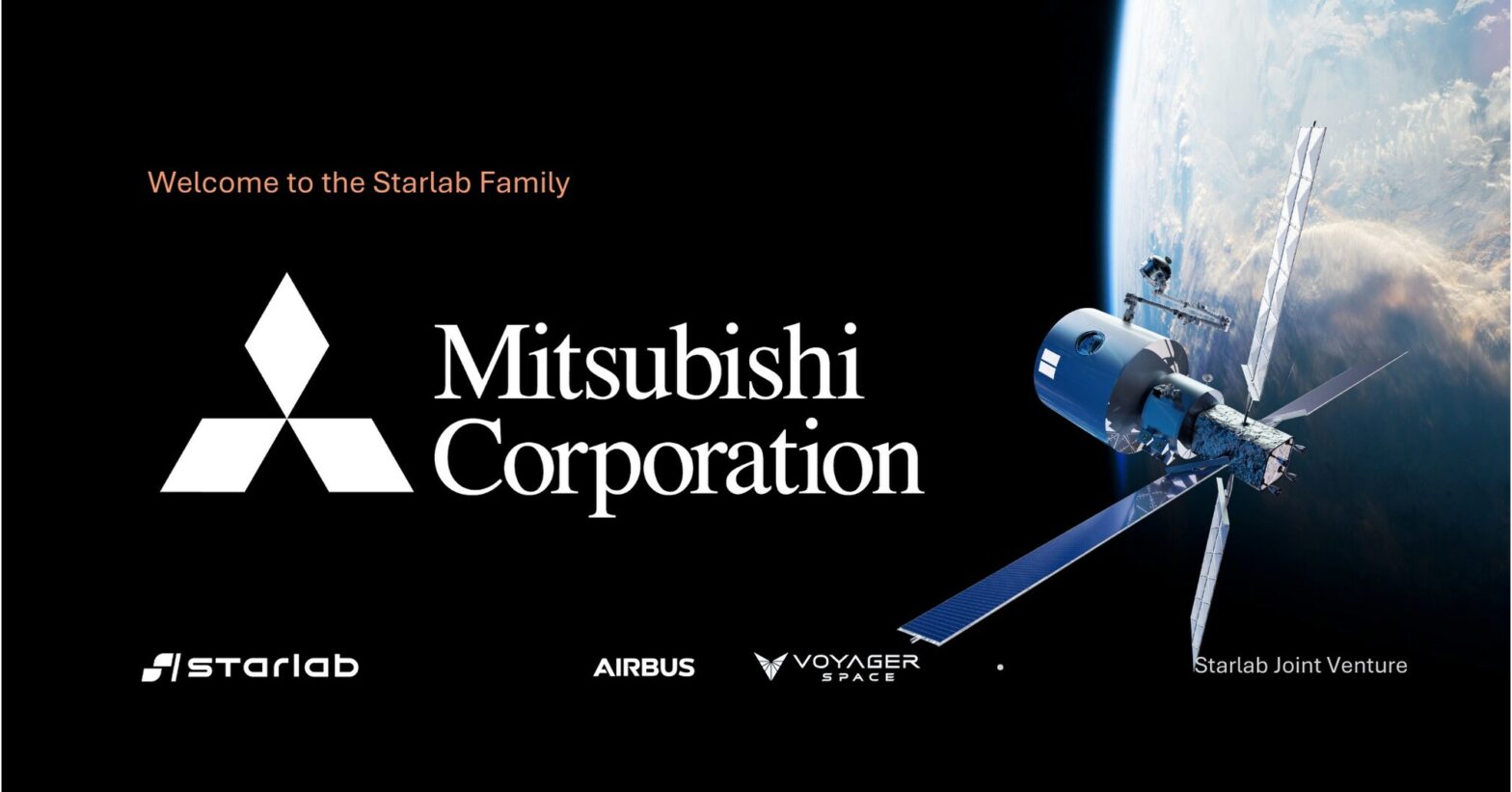Japan’s Mitsubishi Corp. is joining Starlab Space, the joint venture of Voyager Space and Airbus Defence and Space that is developing a commercial space station.
Starlab Space announced recently that Mitsubishi has become a strategic partner of Starlab Space and would take an equity stake in the joint venture. A Starlab spokesperson declined to provide specific details about the agreement, including its financial value or the size of the equity stake.
“We are excited to join forces with Starlab, a best-in-class team comprising Airbus and Voyager, to drive innovation and catalyze advancements in space exploration,” said Mikito Nakaniwa, division chief operating officer of Mitsubishi’s Infrastructure, Ship & Aerospace Division, in a statement.
The announcement did not identify any specific roles or responsibilities for Mitsubishi in Starlab, stating only that the company would “significantly increase the value of Starlab” by using space research to support terrestrial product development in a range of industries. It would also provide Japanese industry with access to Starlab’s capabilities.
“Our next-generation space station relies on both innovation and experience. Hence Mitsubishi Corporation, a pioneer of space business in Japan since the 1960s with a strong drive for shaping the future, is a perfect addition to our team,” said Mike Schoellhorn, chief executive of Airbus Defence and Space, in the statement.
Having a Japanese company involved in Starlab could also help the company access funding from the Japanese government. Current partners in the International Space Station are pondering how they will continue their current activities on the station once it is retired around the end of the decade, with a preference for keeping investments in their countries rather than making direct payments to an American commercial space station operator.
Voyager and Airbus announced the creation of the Starlab Space joint venture in August, with Voyager holding a majority stake. The companies had previously announced an agreement where Airbus would provide technical support, including work on the station’s single large module, for Starlab.
One reason for the partnership was to give Starlab better access to European markets through Airbus. In November, Airbus and Voyager announced they signed a memorandum of understanding with the European Space Agency to explore how to use Starlab to provide ESA with continued access to low Earth orbit after the retirement of the ISS. That could involve using commercial cargo and crew vehicles developed in Europe with the support of ESA, which announced a cargo vehicle initiative around the time the memorandum was signed.
Starlab Space announced in January that it reached an agreement with SpaceX to launch the Starlab station on a single flight of SpaceX’s Starship vehicle in the late 2020s.










